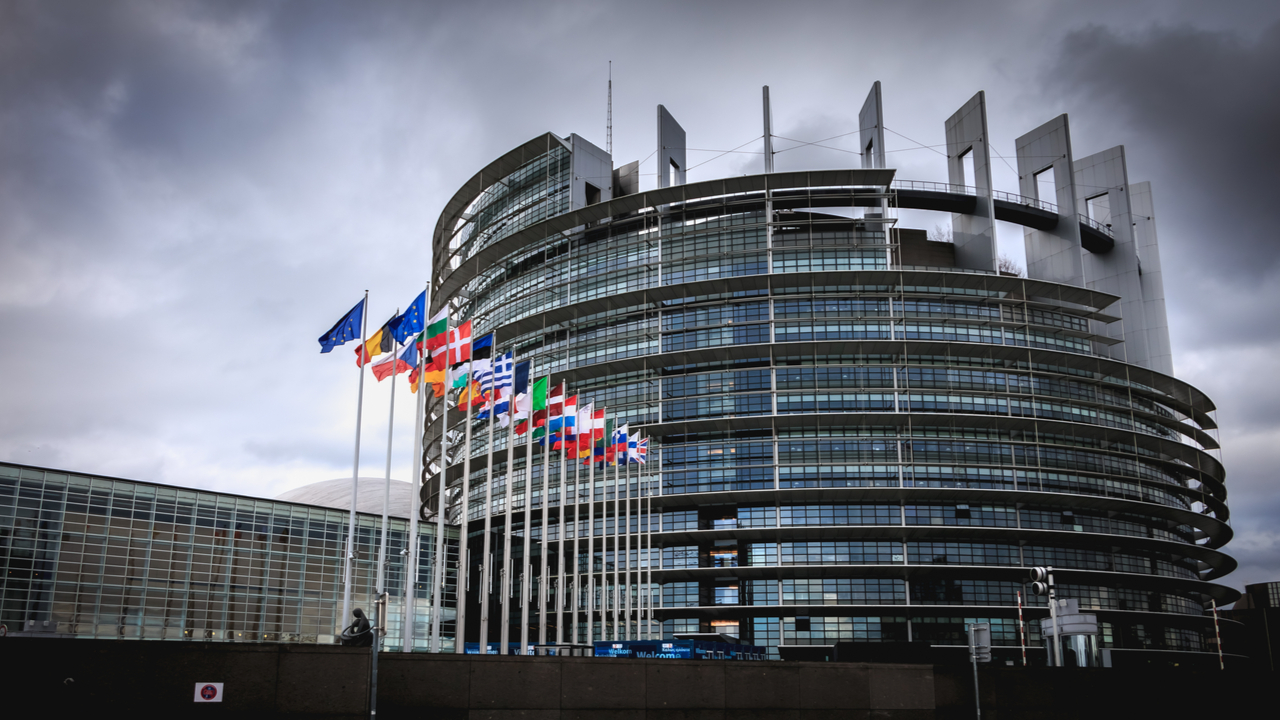
The rise came immediately after Bolivia’s central bank lifted a 42-month ban on cryptocurrency payments, allowing financial entities to conduct transactions with digital assets.
Bolivia’s central bank has reported a 100% increase in average monthly virtual asset trading in the county since lifting its ban on Bitcoin in late June.
Roughly $15.6 million in virtual assets were traded on an average monthly basis between July and September — 105% higher than the average of the previous 18 months, from January 2023 to June 2024.
The $48.6 million traded over the last three months was more than the previous six months combined and largely comprised of stablecoin transactions, Banco Central de Bolivia (BCB) revealed in a Sept. 26 report.
 The Markets in Crypto Assets (MiCA) regulatory package passed another potential hurdle this week and is moving to the next stage of the EU’s legislative process. Proponents of a controversial text prohibiting proof-of-work (PoW) cryptocurrencies, which was recently dropped from the draft, did not take an opportunity to block the draft’s progress. EU Parliament, Commission […]
The Markets in Crypto Assets (MiCA) regulatory package passed another potential hurdle this week and is moving to the next stage of the EU’s legislative process. Proponents of a controversial text prohibiting proof-of-work (PoW) cryptocurrencies, which was recently dropped from the draft, did not take an opportunity to block the draft’s progress. EU Parliament, Commission […] European Parliament’s economic and monetary affairs committee has voted against banning proof-of-work-based assets for companies in the European Union. An alternative proposal on crypto assets by European Parliament member Stefan Berger receives support instead. Committee Rejects Proof-of-Work Ban The Committee on Economic and Monetary Affairs (ECON) voted on the proposed Markets in Crypto Assets (MiCA) […]
European Parliament’s economic and monetary affairs committee has voted against banning proof-of-work-based assets for companies in the European Union. An alternative proposal on crypto assets by European Parliament member Stefan Berger receives support instead. Committee Rejects Proof-of-Work Ban The Committee on Economic and Monetary Affairs (ECON) voted on the proposed Markets in Crypto Assets (MiCA) […] Changes to the EU’s MiCA proposal to regulate crypto markets, suggested shortly before a vote on the package, indicate a bitcoin ban is still a possibility. Despite recently removing wording that would have prohibited coins with energy-intensive mining, some members of the European Parliament are now targeting “unsustainable” cryptocurrencies. New MiCA Paragraphs Call for Subjecting […]
Changes to the EU’s MiCA proposal to regulate crypto markets, suggested shortly before a vote on the package, indicate a bitcoin ban is still a possibility. Despite recently removing wording that would have prohibited coins with energy-intensive mining, some members of the European Parliament are now targeting “unsustainable” cryptocurrencies. New MiCA Paragraphs Call for Subjecting […]
President Samia Suluhu Hassan’s positive stance on crypto could see Tanzania’s central bank reversing its previous cryptocurrency prohibition.
The Bank of Tanzania is reportedly working to overturn its ban on crypto amid favorable cryptocurrency comments made by the country’s president.
According to Reuters, Tanzania’s central bank has begun working on directives from the country’s federal government that could see a reversal of its November 2019 crypto ban.
As previously reported by Cointelegraph, president Hassan urged the central bank to begin exploring Bitcoin (BTC) and digital assets earlier this month.
At the time, Hassan enjoined the Bank of Tanzania to keep up with the times, given the growing popularity of cryptocurrencies.
These favorable comments on crypto came on the heels of El Salvador’s Bitcoin Law and a wave of positive BTC sentiment across several nations in Latin America.
However, in Africa, crypto-related regulations beyond central bank bans are yet to emerge. Back in February, Nigeria’s central bank also prohibited financial institutions in the country from servicing crypto exchanges.
For Abdulmajid Nsekela, chairman of the Tanzania Bankers Association, the move could help to diversify financial transactions in the country that are currently dominated by cash payments.
Related: Tanzanian president urges central bank to prepare for crypto
Nsekela also echoed the president’s comments about the Bank of Tanzania needing to become better acquainted with the crypto market, adding, “The most challenging element for regulators is to be caught by surprise by innovations.”
According to data from Useful Tulips — a platform that tracks peer-to-peer BTC trading across the globe — Tanzania ranks seventh in peer-to-peer trading volume in Sub-Saharan Africa. Nigeria still accounts for more than half of the region’s Bitcoin trading activity.
While clear-cut crypto regulations are yet to emerge on the continent, some nations are working toward floating central bank digital currencies. Indeed, the central banks of both Nigeria and Ghana have issued announcements to that effect in June.

Indian state officials are reportedly no longer keen on banning Bitcoin and a crypto regulatory bill may be up for discussion during the Monsoon Session of Parliament.
The tide may have finally turned for cryptocurrencies in India as reports indicate a softer stance by the government towards crypto.
According to a report by The New Indian Express on Thursday, the government’s hostile stance towards Bitcoin (BTC) appears to be shifting towards more common-sense regulatory policies for cryptocurrencies.
According to inside sources quoted by the publication, authorities have dropped earlier plans for a blanket Bitcoin ban in favor of classifying cryptocurrencies as an alternative asset class.
The Securities and Exchange Board of India will reportedly be tasked with overseeing crypto regulations in the country in collaboration with the finance ministry.
These inside sources also claim that Parliament will debate a comprehensive crypto regulatory bill during the Monsoon Session beginning in July. An expert panel created by the finance ministry is reportedly studying protocols for crypto regulation and its finding could form part of the parliamentary deliberations next month.
Commenting on the emerging positive signals on the crypto regulatory front, Ketan Surana, a member of the Internet and Mobile Association of India said:
“We can definitely say that the new committee which is working on cryptocurrencies is very optimistic on cryptocurrency regulation and legislation.”
Back in May, Indiatech.org, a technology lobby group in India urged the government to define crypto as digital assets and not currencies.
Meanwhile, the Reserve Bank of India remains a staunch crypto critic with the central bank recently stating that its position on cryptocurrencies remains unchanged. However, the RBI has distanced itself from reports that it mandated banks to block services to crypto exchanges.
Indeed, India’s Supreme Court overturned in March 2020 overturned a 2018 RBI ban that prohibited banks from servicing cryptocurrency exchanges. As previously reported by Cointelegraph, three major crypto exchanges — Kraken, Bitfinex and KuCoin — are looking to enter the Indian market.

Only millionaires will be allowed to trade Bitcoin and cryptocurrencies in Hong Kong if the FSTB proposal is passed by the city’s legislature.
Hong Kong regulators have moved to ban retail trading in Hong Kong after months of intense speculation about a likely prohibition.
According to a report by Reuters on Friday, the Financial Services and the Treasury Bureau of Hong Kong has released the results of its consultation on a possible retail crypto trading ban, which began back in November 2020.
As part of its conclusions, Hong Kong’s FSTB called for a comprehensive licensing regime for crypto exchanges while restricting trading only to qualified investors. Per Hong Kong law, only individuals with portfolios worth 8 million Hong Kong dollars (about $1 million) qualify as professional investors.
For the FSTB, the retail crypto trading ban is necessary at least in the early stages of the comprehensive crypto licensing regime. The FSTB reportedly plans to present its conclusions before legislators in Hong Kong to facilitate the passage of the proposal into law.
If passed, the proposed licensing regime will also replace the current opt-in paradigm for crypto exchanges in the city.
By limiting crypto trading in Hong Kong to persons with portfolios worth at least $1 million, the FSTB is potentially excluding up to 93% of the city’s population from gaining access to cryptocurrencies.
Several stakeholders in Hong Kong’s vibrant crypto industry have expressed their dissatisfaction with the plan in the past, arguing that the move was inimical to the government’s goal of encouraging financial innovation.
In another related development, Hong Kong’s government is reportedly planning to empower the city’s Securities and Futures Commission to withdraw the licenses of already authorized crypto exchanges.
Tweeting on Friday, Chinese crypto media outlet 8BTC News revealed that the SFC may soon be given the power to exercise the right at will.
Back in November 2020, the SFC announced a proposal to expand its crypto oversight responsibilities beyond security tokens to cover all digital asset service providers.
 Two Turkish cryptocurrency exchanges are being investigated by the authorities in Turkey after they abruptly halted trading. The authorities have blocked access to the bank accounts of the second exchange and detained four people so far. Sixty-two people have been detained in connection with the first exchange whose CEO has fled the country. Second Turkish […]
Two Turkish cryptocurrency exchanges are being investigated by the authorities in Turkey after they abruptly halted trading. The authorities have blocked access to the bank accounts of the second exchange and detained four people so far. Sixty-two people have been detained in connection with the first exchange whose CEO has fled the country. Second Turkish […]